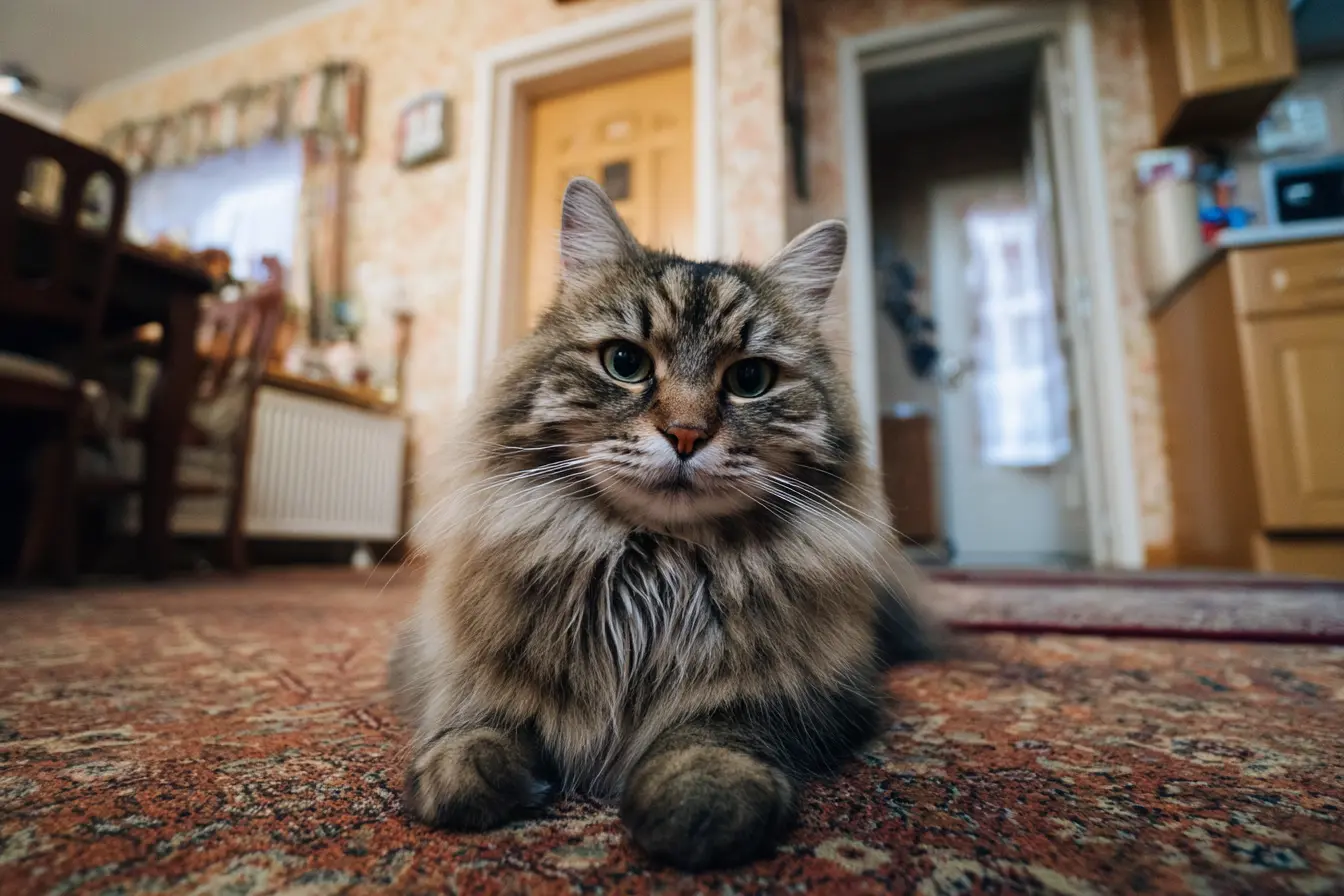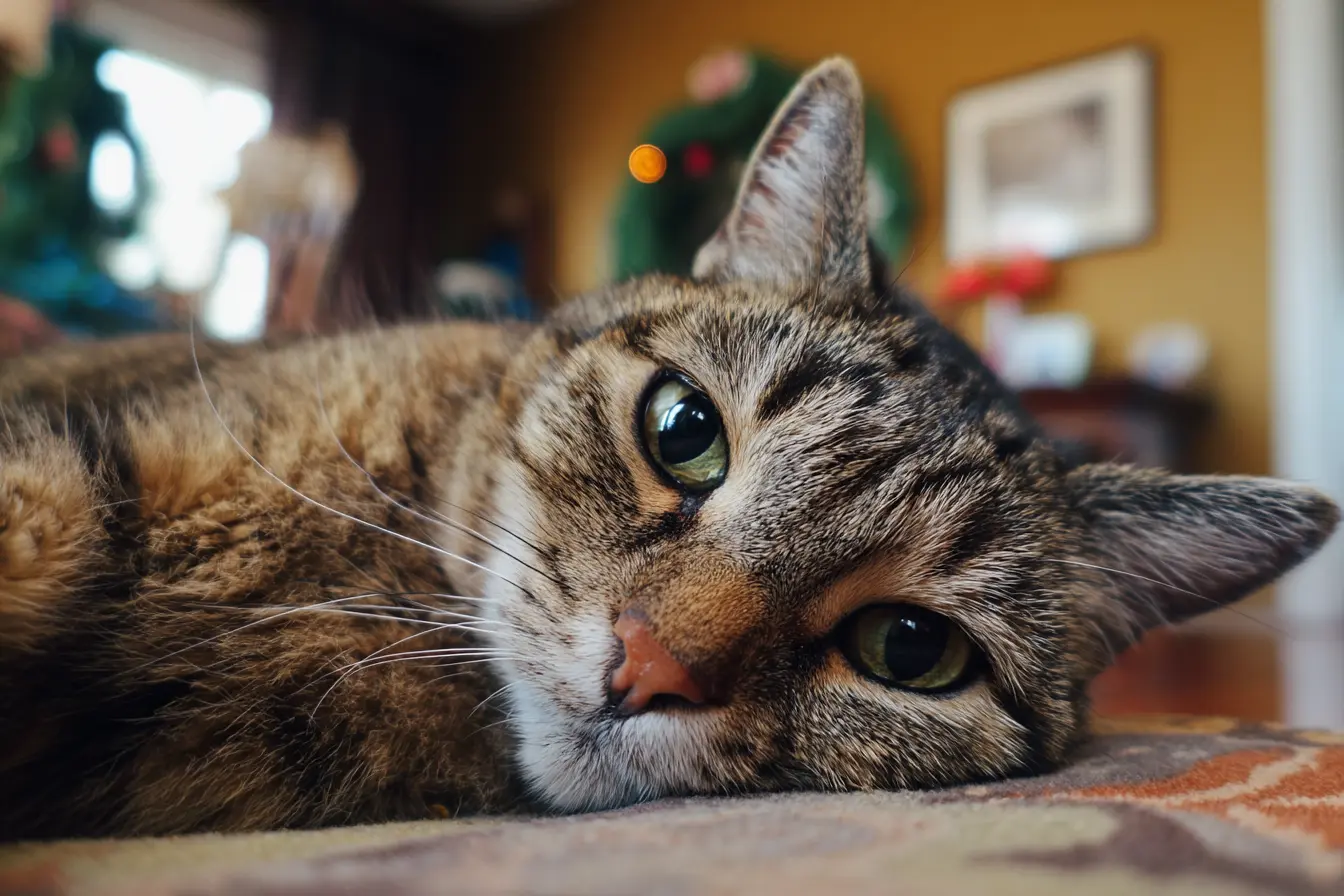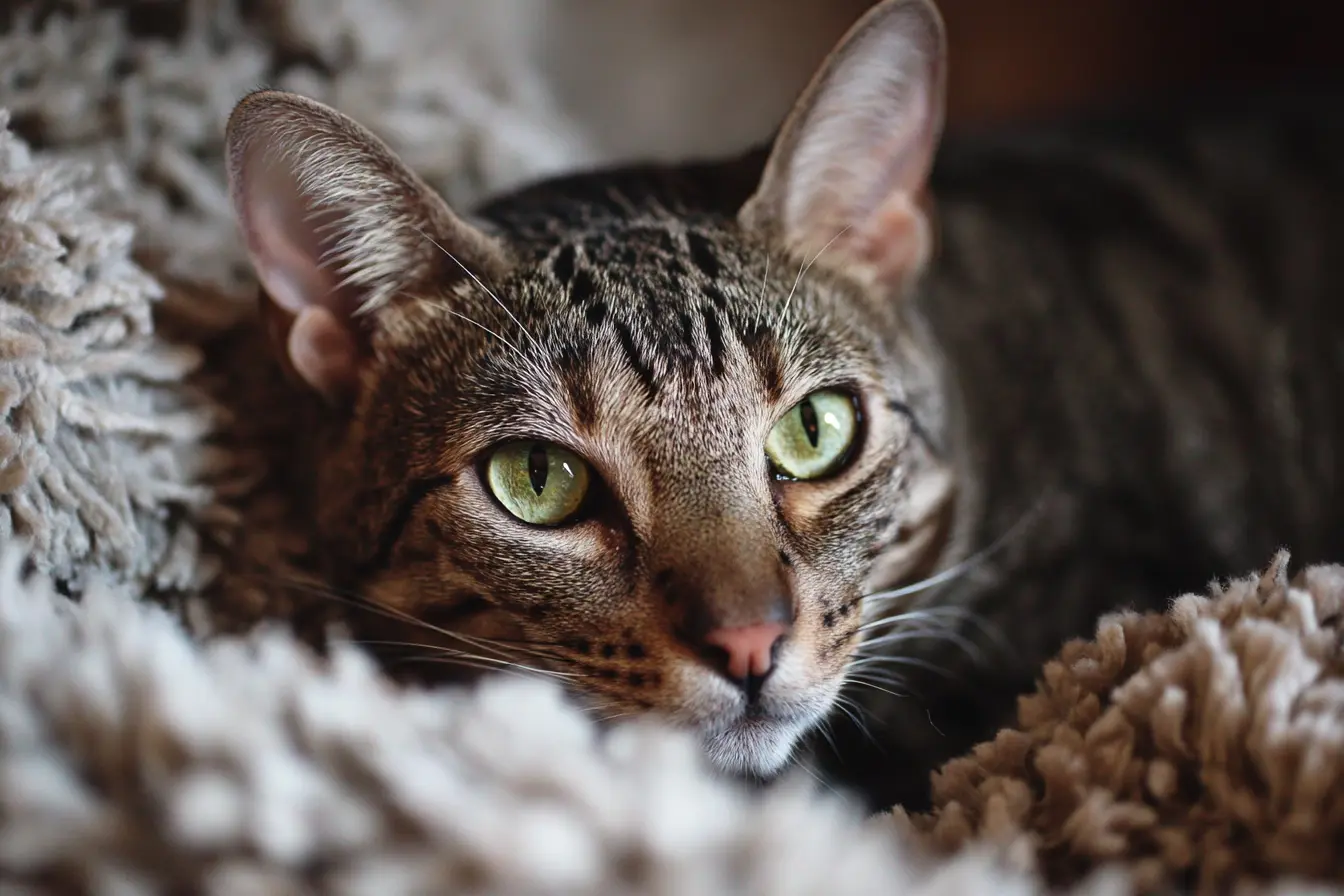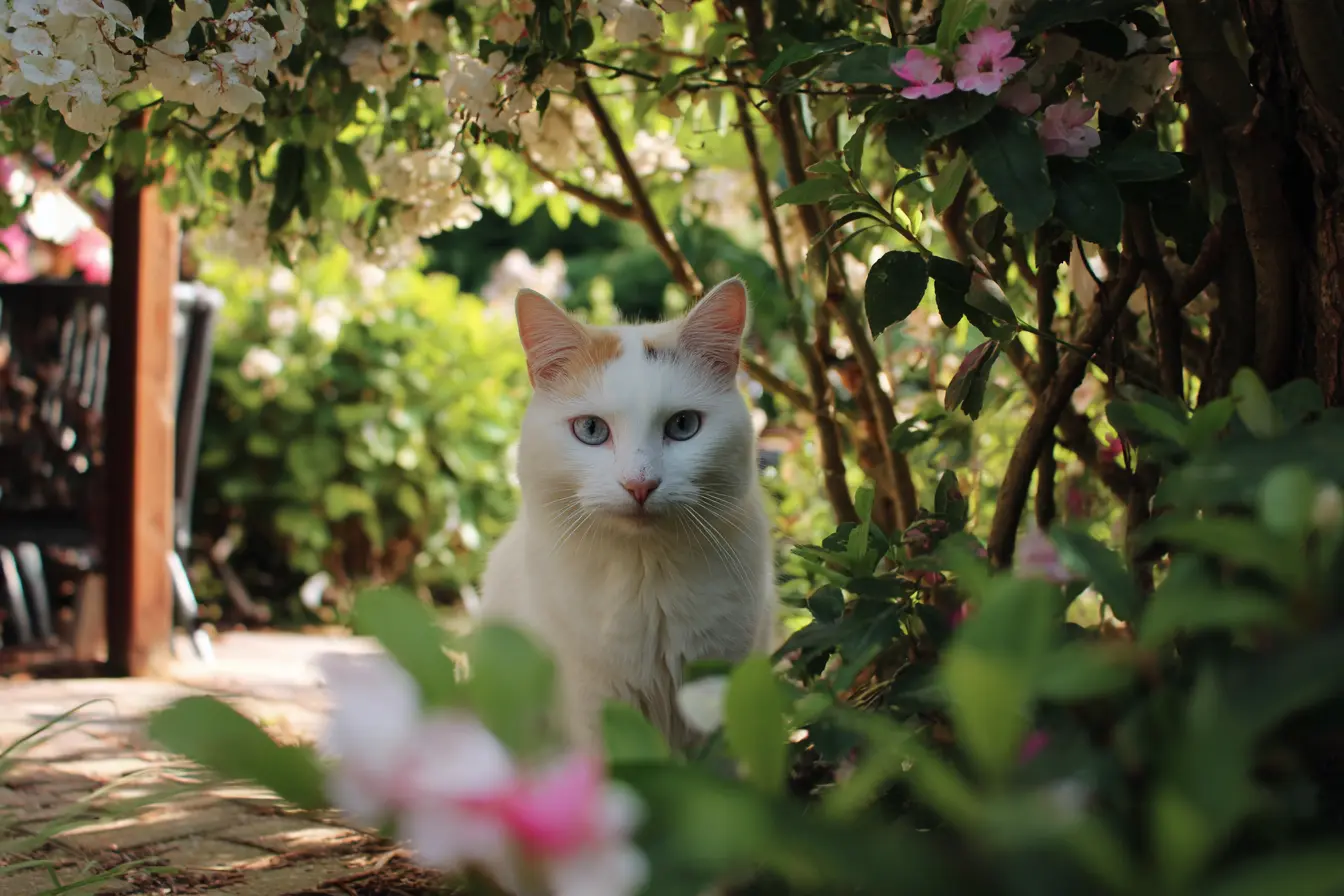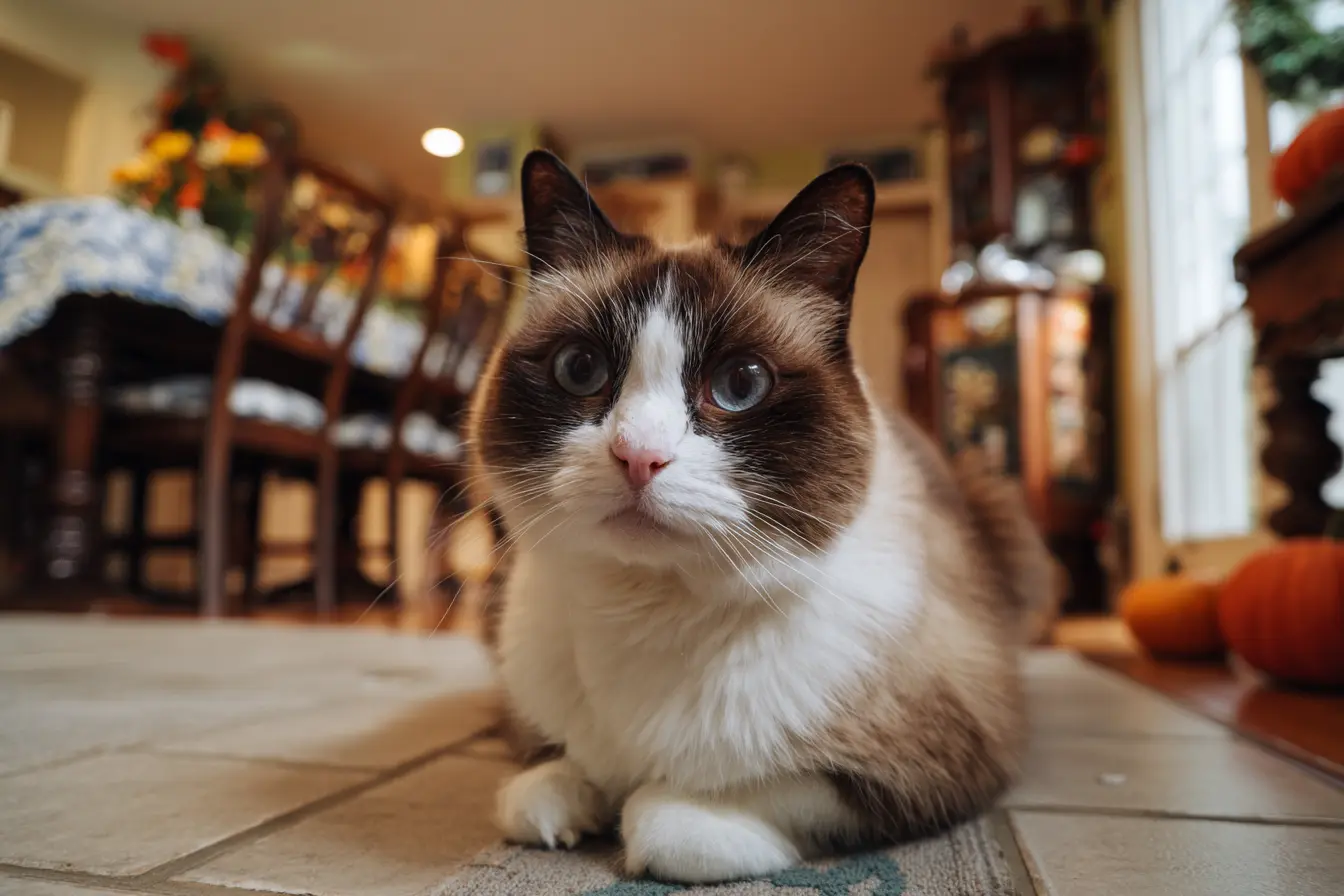
The Snowshoe cat: a charming companion with a striking appearance
Combining the elegance of the Siamese with unique markings and a mellow, affectionate nature, the Snowshoe cat is an endearing and relatively rare breed. With their distinctive white paws, soft voices and social personalities, Snowshoes make loving companions for cat lovers who appreciate a cat with both character and beauty. This guide covers the Snowshoe’s history, traits, grooming needs and what makes this breed so special.
Breed history and characteristics
The Snowshoe cat originated in the United States in the 1960s, when a Siamese breeder in Philadelphia noticed kittens born with white feet. These kittens were unlike typical Siamese cats, and she began selectively breeding to develop the look. The breed was eventually established through careful crosses between Siamese cats and American Shorthairs, which helped create the Snowshoe’s more solid body and balanced temperament.
Snowshoe cats are medium-sized, muscular and athletic. They have a short, smooth coat and a distinctive colour-point pattern, with darker colouring on the ears, tail, and face. Their most recognisable feature is their white feet — hence the name — along with an inverted white “V” on the face and bright blue eyes.
Coat colours can include seal, blue, chocolate and lilac points, and no two Snowshoes look exactly alike. Their markings are influenced by genetics and can vary considerably from cat to cat.
Temperament
Snowshoes are friendly, intelligent and affectionate cats. They often form close bonds with their owners and enjoy being involved in household life. They are sociable cats who typically follow their humans from room to room, offering soft vocalisations and expressive looks to communicate their needs.
While they retain some of the Siamese’s talkative traits, Snowshoes tend to be quieter and less demanding. They enjoy interaction but are not usually clingy. Most Snowshoes get along well with other cats, cat-friendly dogs and respectful children, making them an ideal pet for families or individuals looking for a loyal and interactive companion.
Their intelligence means they enjoy games, puzzle toys and even learning tricks. They are often fascinated by water and may dip a paw into a bowl or play near the sink.
Health and lifespan
Snowshoe cats are generally healthy and can live between 14 and 18 years with good care. As a relatively new and rare breed, they benefit from a diverse gene pool, although some health issues seen in Siamese lines may occasionally occur. These can include:
- Respiratory issues
- Dental disease
- Crossed eyes (more aesthetic than problematic)
Regular veterinary care, a good diet and dental hygiene will help maintain their long-term wellbeing. When choosing a Snowshoe kitten, it’s important to seek out reputable breeders who focus on health and temperament as well as appearance.
Grooming and care
Snowshoe cats have short, smooth coats that require minimal grooming. A quick weekly brush is usually enough to remove loose hairs and keep their coat looking sleek. They shed moderately and are generally considered low-maintenance in terms of coat care.
Routine grooming should also include:
- Nail trimming
- Dental care
- Ear cleaning
They are clean cats and prefer a tidy litter tray and a peaceful, predictable environment.
Living environment
Snowshoes are adaptable cats that do well in a variety of living situations, from flats to larger homes. What they truly need is companionship and engagement. They enjoy sunny windowsills, soft places to nap, and opportunities to interact with their humans.
They are best kept indoors or in secure outdoor enclosures, as their trusting nature and distinctive markings may make them vulnerable outdoors. Provide vertical space such as cat trees or shelves, as well as toys and games to keep their curious minds active.
Training and socialisation
Highly intelligent and eager to connect, Snowshoe cats respond well to positive reinforcement training. They can learn to come when called, use puzzle feeders, and even play games like fetch. Some owners also report success with clicker training or harness walking.
Early socialisation helps Snowshoes remain confident and friendly around new people, pets and experiences. They are generally welcoming and adaptable but benefit from gentle handling and consistency.
Considerations for prospective owners
- Snowshoes are affectionate and social, but not overly vocal or clingy
- They need regular interaction and should not be left alone for long periods
- Their grooming needs are minimal, but they thrive in a stable, clean environment
- Reputable breeders may be harder to find due to the breed’s rarity
Conclusion
The Snowshoe cat is a unique and beautiful breed with a big heart and a soft voice. Their striking markings, playful personality and gentle affection make them a wonderful choice for households that can offer companionship, engagement and a loving environment.
If you're drawn to the Snowshoe’s charm, take the time to meet the breed in person and speak with knowledgeable breeders or rescue organisations. Like any pet, bringing a Snowshoe into your life is a long-term commitment — one that promises years of connection, warmth and companionship.
Vets near you
Speciality vets
- Aquatics vet specialists
- Birds vet specialists
- Camelids vet specialists
- Cats vet specialists
- Cattle vet specialists
- Deer vet specialists
- Dogs vet specialists
- Equines vet specialists
- Exotic vet specialists
- Goats vet specialists
- Pigs vet specialists
- Poultry vet specialists
- Sheep vet specialists
- Small Mammals vet specialists
- Wild vet specialists
Vet facilities
- Accessible by public transport
- Blood testing
- Car park nearby
- Client car park
- Dentistry
- Diagnostic imaging
- Disabled public access
- Flea and worm treatments
- Microchipping
- Mobile services
- Neutering
- Open at weekends
- Out-of-hours service
- Referral interests
- Referrals only
- Street parking outside
- Toilets available
- Vaccinations
